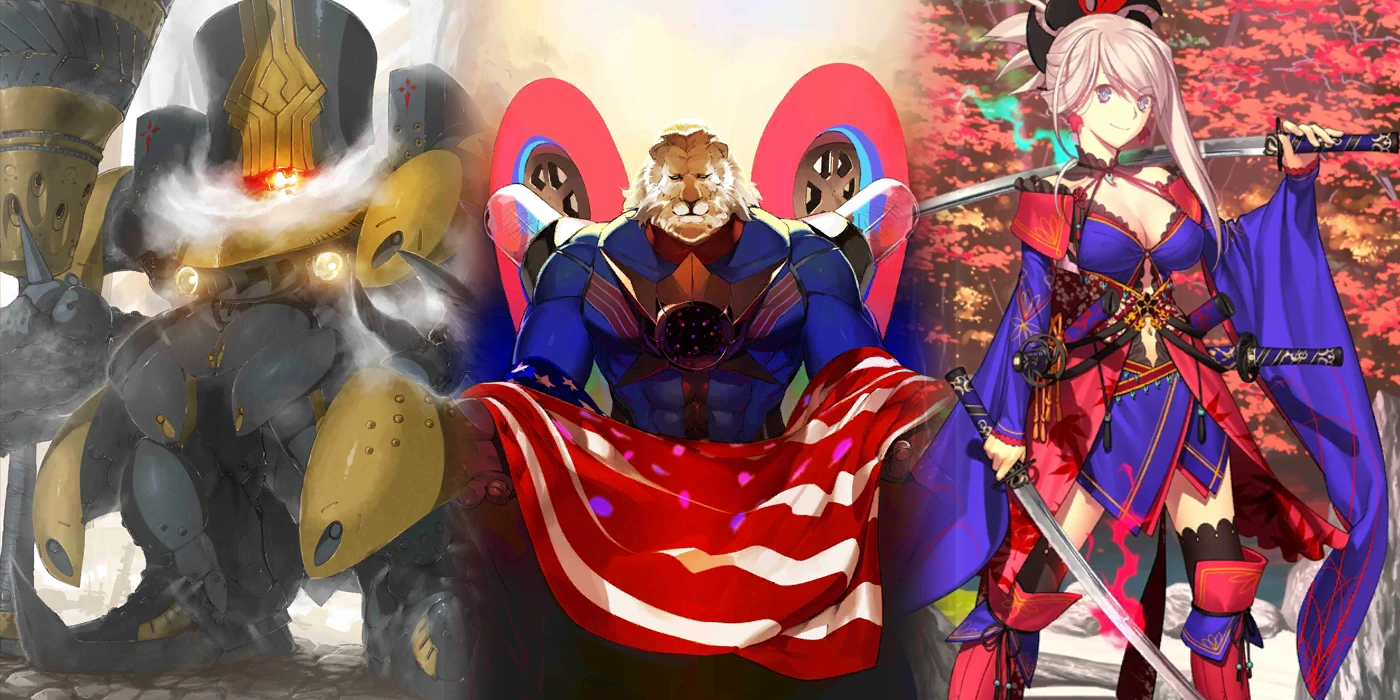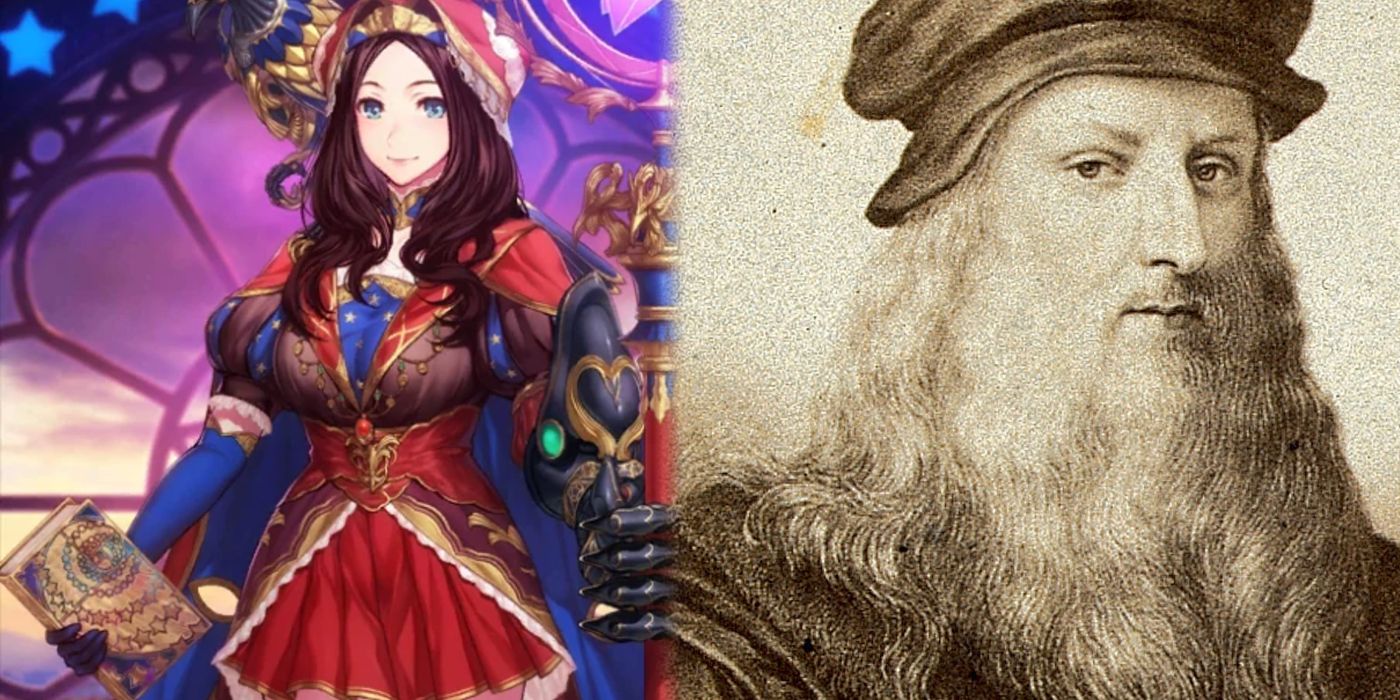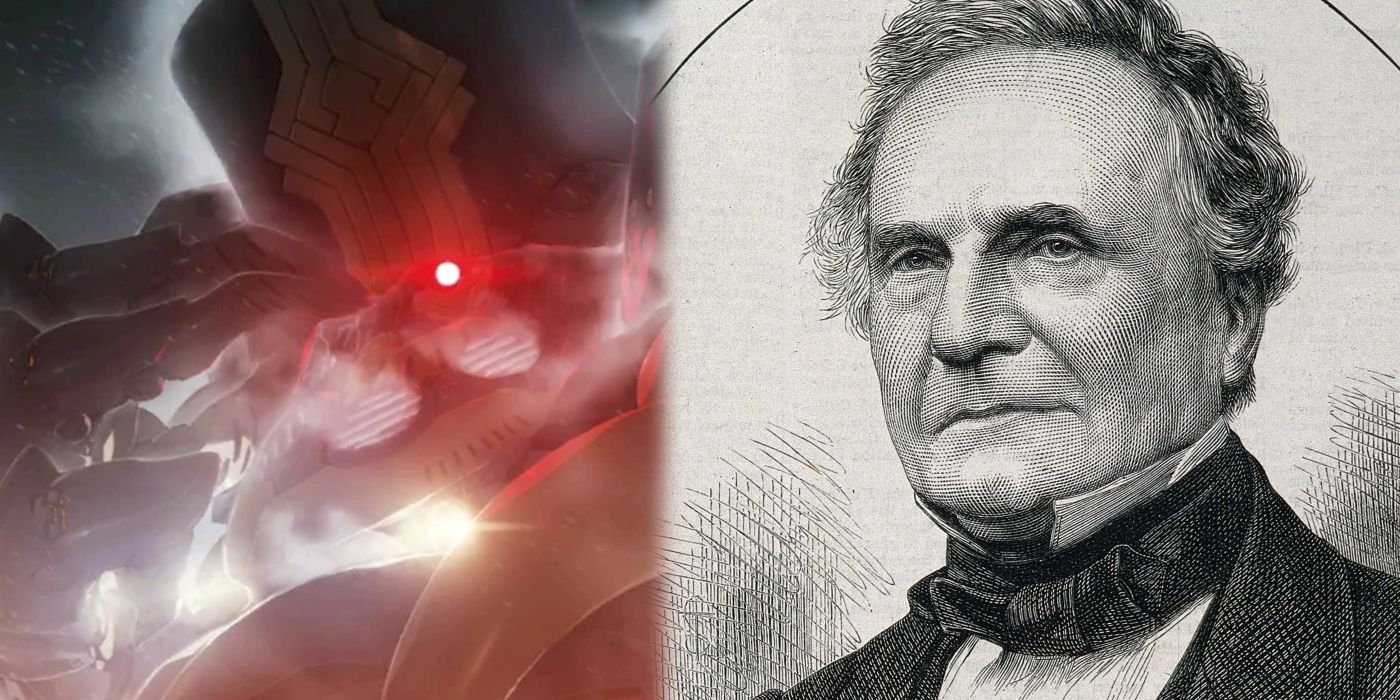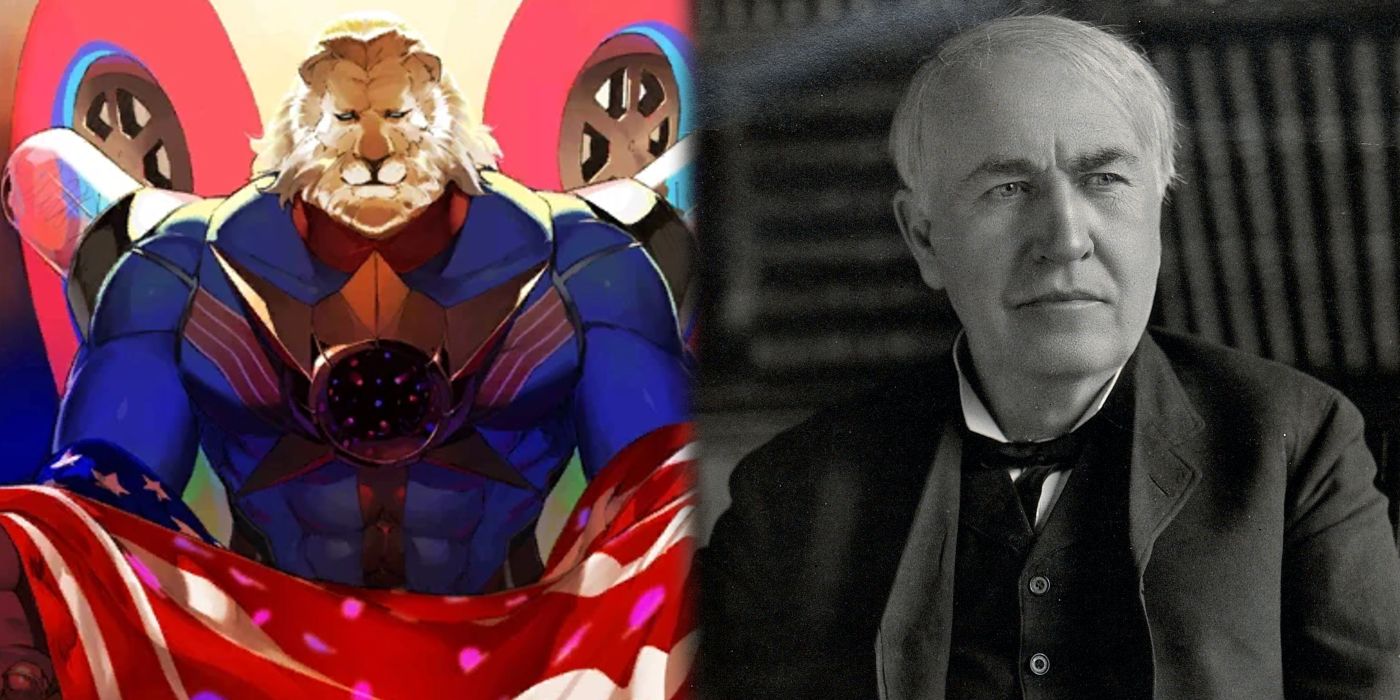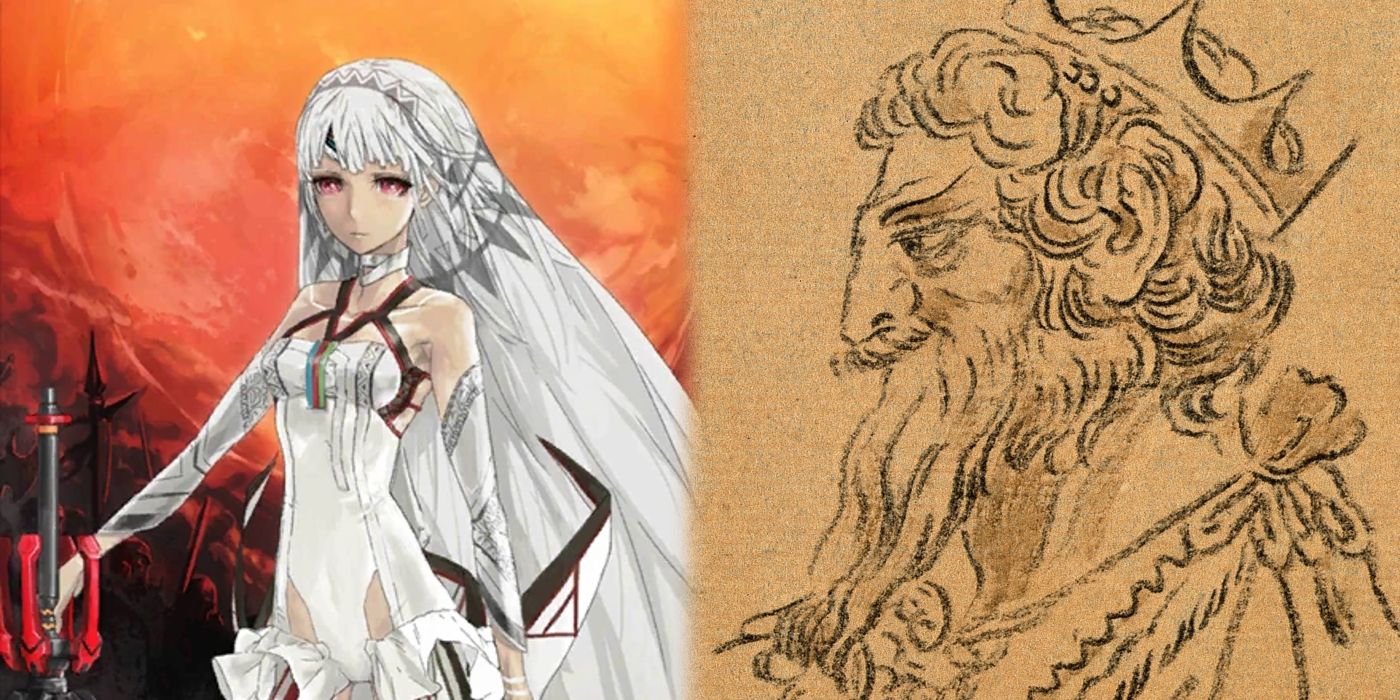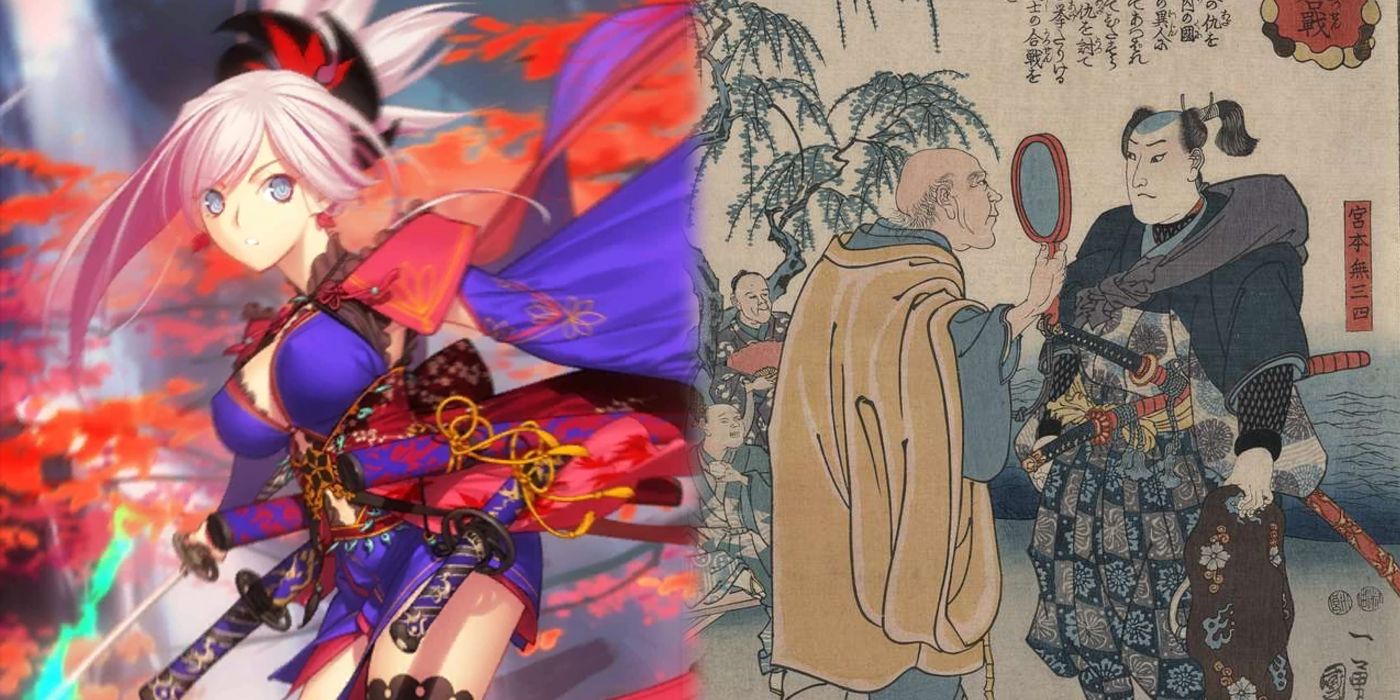Anyone familiar with Fate/Grand Order knows just how ridiculous and bizarre its characters can get - especially the ones based on real-life historical figures. Fate/Grand Order's premise lends itself well to interesting interpretations of historical figures across cultures, and the result is often something extremely surprising, if not an almost complete departure from the source material altogether.
Fate/Grand Order is a mobile title that thrives on introducing variety into its gameplay systems through Servants, the characters players add to their roster over time through the game's gacha mechanics. It's similar to Genshin Impact in that regard, but instead of characters and weapons, it's Servants and Craft Essences (alongside a few other items) that make up a player's inventory. However, Fate/Grand Order and the Fate series as a whole ties these elements together with an emphasis on loose interpretations of historical figures and facts, resulting in a story that's often weird but familiar on some level. Perhaps the best-known example of how Fate changes up history and myth is in King Arthur's interpretation across the Fate universe as Artoria Pendragon, a female version of Arthur and, as far as the game's lore is concerned, the accurate depiction of the legendary British hero.
The way Fate/Grand Order depicts its mythological or legendary characters is one thing, but the game gets especially weird when it comes to interpreting FGO real-life servants based on history. Instead of pulling back on the reins a little, Fate/Grand Order dives headlong into some truly off-the-wall depictions of people who actually existed - and almost certainly didn't exist the way they're shown in-game. Here's a list of Fate/Grand Order's weirdest real-life historical figures - prepare for a lot of creativity.
FGO's Leonardo Da Vinci (Caster)
In Fate/Grand Order, Leonardo Da Vinci is every bit the genius she was renowned to be in life, but the game's lore describes Da Vinci as both a woman and a mage of some renown. Apparently, Da Vinci was a powerful magus that also happened to excel at all the things she was known for during her life - science, mathematics, painting, and more. Her character model also shares some similarities with the Mona Lisa, which implies that this is perhaps how Da Vinci saw herself, and that, at least as far as Fate/Grand Order is concerned, the famous painting is actually a self portrait. Da Vinci also factors heavily into Fate/Grand Order's storyline as a crucial member of the team, and undergoes another aesthetic change later on.
FGO's Charles Babbage (Caster)
Charles Babbage is a weird choice for a Heroic Spirit in the first place, having mostly been credited with a storied career in science - he's credited with inventing the first mechanical computer, which has led some to refer to him as the "father of the computer." Fate/Grand Order leans heavily into that interpretation of Babbage's personality, depicting him as a gigantic mecha instead of a proper human being. Babbage used steam-powered machines to attempt to mechanize calculations, and in Fate/Grand Order, his entire robot persona manifests as a steam-powered fighter. It may not make a lot of sense, but at least he looks cool.
FGO's Thomas Edison (Caster)
For those unfamiliar, Thomas Edison was an American inventor, often described as the greatest from that country. He's credited with the invention of the camera, light bulb, and phonograph to name a few, so his connection to electricity as a whole is pretty built-in to any representation of him as a Heroic Spirit.
It's pretty difficult to explain, then, exactly why Edison is a towering, well-built man equipped with shoulder lightbulbs with a lion's head in Fate/Grand Order. Apparently, though, because he's not a particularly strong choice as a Heroic Servant on his own - he's pretty modern to be selected by the Throne of Heroes - he also manifested with generations-worth of American Presidents reinforcing the concept of his being, which resulted in a lion man who loves the United States (and electricity) an awful lot. They don't get much weirder than Fate/Grand Order's Thomas Edison, but he's an interesting Heroic Spirit and he embodies what the game does well, stretching character traits of famous figures to their extreme (and then adding hefty amounts of creative liberty on top).
FGO's Atilla the Hun (Saber)
Fate/Grand Order's take on Atilla the Hun manifests as the terrifying Altera. She's nothing like her historical inspiration outside of the fact that both are warriors who wrought destruction across the lands they existed in. In fact, Altera isn't even human in the first place, even before becoming a Heroic Spirit - the being people understood to be "Atilla the Hun" was actually an avatar of destruction, having been created by some other-worldly force as an embodiment of ruin. She's actually an alien, to make a long story short, or the embodiment of one - and she wields alien tech like her Photon Ray sword instead of the metal saber one might expect from a 5th century warlord.
FGO's Miyamoto Musashi (Saber)
Fate/Grand Order features a lot of historical figures from Japan, but the most interesting interpretation is perhaps how the game treats Miyamoto Musashi. In history, Musashi was a renowned fighter from the Edo period that was arguably the most influential swordsman in Japan, founding a school of based on a form of combat he invented in Niten Ichi-ryū and penning a series of philosophical texts that remain well-regarded today. In Fate/Grand Order, Musashi is a young woman that comes from an alternate timeline that has been extinguished, cursed to constantly shift between different timelines. She's still one of the most powerful sword-users ever, but she's a wanderer that keeps jumping between homes, and she's adopted a very carefree attitude, seeking out those she feels are worthy of dueling without worrying about much else.
Given the historical precedent Musashi set, it would've been easy to adapt the character more directly. Musashi is a good example of how Fate/Grand Order tries to subvert expectations for historical figures in a number of ways, even if they're already famous enough - and skilled enough in battle - that they don't need a lengthy explanation to justify their combat prowess.
Fate/Grand Order is available now on iOS and Android mobile devices.

